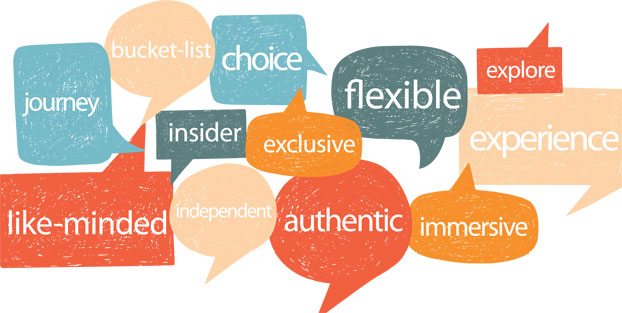It’s time to bin the bus. Joanna Booth looks at how we talk about touring
Would you rather take a coach tour with included excursions, or a guided holiday packed with immersive experiences?
They’re actually one and the same, but one definitely sounds easier to sell.
Words change how we see the world. Just look at the news debates around use of the term ‘immigrants’, instead of ‘refugees’. The linguistics of escorted touring may be less politicised, but many suppliers believe it’s time to think about how we talk about these trips.
Trafalgar chief executive Gavin Tollman says: “There are negative stereotypes associated with escorted touring: that it’s for old people; that it’s superficial, tick-box tourism. The word ‘bus’ conjures up soulless drives down long highways. We need to change the conversation, speak more emotively, less rationally.”
For Tollman, this is the second stage of a strategy that began in 2009 with changing Trafalgar’s holidays to make them more immersive and experiential, with elements including the pioneering Be My Guest, where travellers dine with locals in their homes.
But changing the language is an ongoing journey. The operator spent an entire year simply shifting in-house linguistics and tweaking websites, logos and social media. Then it targeted agents, and now the message has travelled one step further. “Every week I read our Feefo reviews,” says Tollman. “Now I see guests using our vocabulary.”
Travellers are changing too. “We’ve seen a shift in age demographics, and a growth in repeat guests,” Tollman adds.

Certain recommended buzzwords recur across all operators. ‘Bus’ and ‘excursion’ are definite no-nos.‘Experience’, ‘adventure’, ‘immersive’ and ‘authentic’ all get the thumbs-up. Change the “Focus on shared experiences, not modes of transport,” says Wendy Wu Tours head of marketing Ben Briggs.
For Abercrombie & Kent, ‘exclusivity’ and ‘insider access’ are key terms, while at Shearings Holidays it’s ‘making the difficult easy’ and ‘road tripping for softies’.
‘Like-minded’ – in relation to other travellers – is emphasised by companies as diverse as Cox & Kings and TrekAmerica. Cosmos emphasises ‘affordable’ and ‘flexible’, and youth specialist Contiki always speaks of ‘travellers’, not guests or customers.
Specialist areas have their own rules. Solos recommends ‘solo’ not ‘single’ for lone travellers, backed up with terms such as ‘dynamic’ and ‘liberated’. Leger Holidays avoids referring to battlefield tours as holidays, to show respect.
Sceptical? Why not try dropping a few buzzwords into your next sales pitch, and see what happens?





